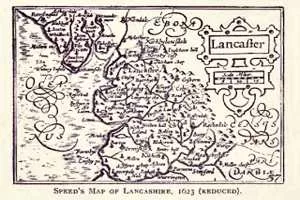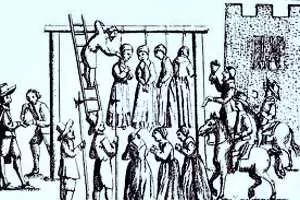Pendle Witch Trials: Gripping Tale of Injustice
In the summer of 1612, the Pendle witch trials became a notorious episode in English history, marked by fear, superstition, and a series of tragic injustices. Among the accused were Anne Redferne, Alice Nutter, and Katherine Hewitt, whose lives were irrevocably altered by the fervor of witchcraft accusations.
This article explores the trials, the individuals involved, and the broader implications of this dark chapter in history.
Anne Redferne: A Rollercoaster of Justice
Anne Redferne’s experience during the trials was a harrowing one. After being acquitted of the murder of Robert Nutter, she felt a fleeting sense of relief. However, this was quickly shattered when she was charged with the murder of Christopher Nutter the very next day. The evidence against her was largely based on the confessions of other accused witches, including Demdike and James Device, as well as testimonies from Margaret Crooke.

Despite the fact that the evidence had previously been deemed insufficient to convict her of Robert Nutter’s murder, it was enough to seal her fate in this subsequent trial. This inconsistency highlights the arbitrary nature of justice during the witch hunts, where the mere accusation could lead to dire consequences.
Alice Nutter: The Gentlewoman Accused
Alice Nutter’s trial was particularly striking due to her status as a gentlewoman, a woman of education and means. In his account, “Wonderfull Discoverie,” Thomas Potts noted that those who practiced witchcraft often fell into two categories: the impoverished, lured by promises of wealth, and the wealthy, driven by a desire for revenge. Nutter, a 70-year-old widow, was convicted based on evidence related to the events at Malkin Tower.
Interestingly, some speculate that Nutter was on her way to or returning from Mass on Good Friday when she was accused. Her refusal to defend herself may have stemmed from a desire to protect her fellow Catholics, as her family had a history of persecution for their faith. John Nutter, her relative, had been executed for being a Catholic priest, and this familial connection raises questions about whether Alice Nutter was targeted due to her religious beliefs in a predominantly Protestant society.
Katherine Hewitt and the Other Accused
Katherine Hewitt, also known as Mouldheels, faced charges of murdering a child, Anne Foulds, through witchcraft. The evidence against her was tenuous at best, yet it was enough to secure a guilty verdict. The trials continued with Jane Bulcock and her son, John, who both pleaded not guilty. Their fates were intertwined with the testimony of nine-year-old Jennet Device, who identified them as participants in the alleged witchcraft.
Alizon Device, another accused witch, was also tried. Her confession included details about a familiar spirit in the form of a black dog, which further fueled the prosecution’s case. Despite inconsistencies in the testimonies, Alizon was found guilty, demonstrating the pervasive influence of fear and superstition in the courtroom.
Sentencing and Execution
On August 20, 1612, the eight Pendle witches, including Anne Redferne, Alice Nutter, and Katherine Hewitt, were sentenced to hang. Judge Bromley’s chilling words echoed in the courtroom: “You shall all go from hence to the Castle, from whence you came; from thence you shall be carried to the place of Execution for this County: where your bodies shall be hanged until you be dead; AND GOD HAVE MERCY UPON YOUR SOULS.”

The execution of these women marked a tragic chapter in English history, reflecting the dangers of mass hysteria and the consequences of a legal system that prioritized confessions over evidence. The Pendle witch trials serve as a reminder of the dark legacy of witch hunts, where fear and prejudice led to the loss of innocent lives.
Conclusion: Lessons from the Past
The Pendle witch trials are not merely a historical curiosity; they are a cautionary tale about the fragility of justice in the face of fear and superstition. The stories of Anne Redferne, Alice Nutter, and Katherine Hewitt remind us of the importance of due process and the need to question the motivations behind accusations. As we reflect on these events, we must remain vigilant against the forces of fear that can lead to injustice, ensuring that history does not repeat itself.
By understanding the Pendle witch trials, we gain insight into the societal dynamics of the time and the consequences of unchecked power and prejudice. It is a stark reminder that the pursuit of justice must always be tempered with reason and compassion.

